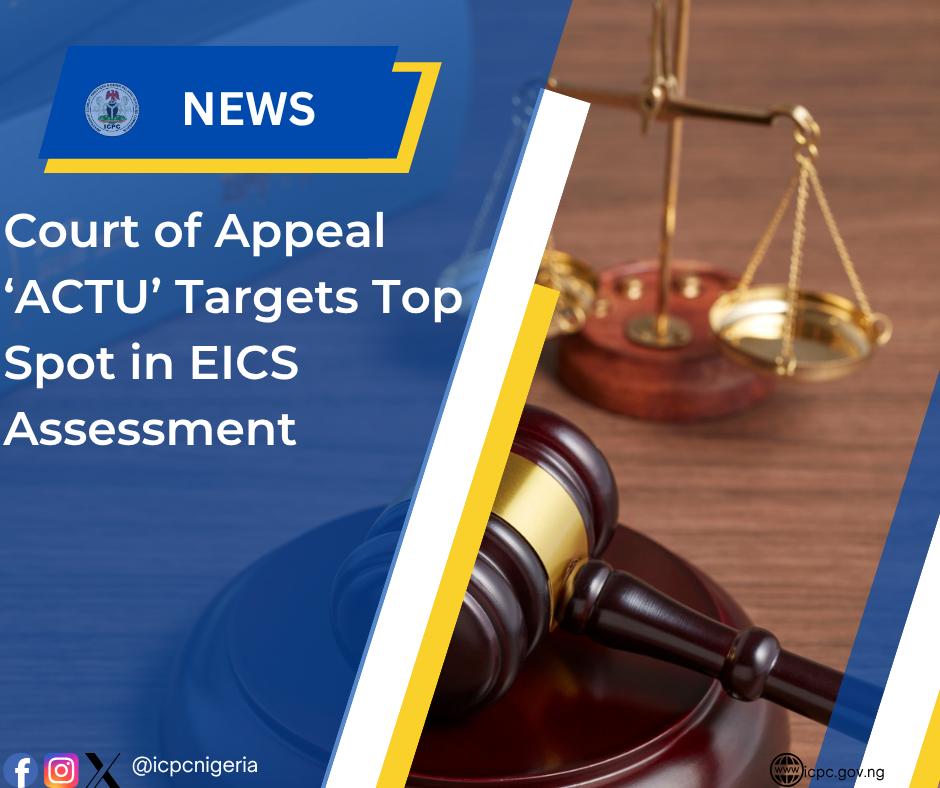The Anti-Corruption and Transparency Unit (ACTU) of the Court of Appeal Headquarters, Abuja, has set its sights on clinching the top position in the ongoing Ethics and Integrity Compliance Scorecard (EICS) assessment being conducted by the Independent Corrupt Practices and Other Related Offences Commission (ICPC).
This bold ambition was declared during a recent visit by the ICPC’s EICS assessment team to the Court of Appeal in Abuja. The visit is part of a nationwide exercise aimed at evaluating Ministries, Departments, and Agencies (MDAs) on their adherence to ethical standards, transparency, and anti-corruption measures.
Speaking during the visit, Team Lead, Mr. Faruk Sani, stressed the significance of the EICS initiative, noting that the scorecard serves as a vital tool in institutionalising integrity within the public service.
“The EICS is designed to identify systemic gaps that enable corruption in MDAs and to recommend targeted corrective actions to promote transparency and ethical conduct,” he said.
Mr. Sani also called for continued support from the Court’s leadership to empower the ACTU in fulfilling its mandate.
In response, the Deputy Chief Registrar of the Court of Appeal, Barrister Everestus Bapman, reaffirmed the judiciary’s commitment to integrity and accountability.
“The Court of Appeal remains fully committed to transparency. We pledge our full cooperation with ICPC and will continue to support ACTU to ensure a successful assessment,” he stated.
Highlighting the Unit’s readiness, Chairperson of the Court’s ACTU, Mrs. Josephine Jemila Ekperobe, expressed strong optimism about the outcome of the 2025 EICS exercise.
“We have worked tirelessly over the past year to meet all key compliance benchmarks. We are confident in our preparedness and anticipate achieving the top spot in this year’s scorecard,” she declared.
Mrs. Ekperobe noted that the Unit’s performance has steadily improved, moving from 189th to 39th position in the previous year’s rankings. She credited this progress to a series of institutional reforms and consistent training efforts, including recent capacity-building sessions at the Anti-Corruption Academy of Nigeria (ACAN).
“We are committed to ongoing training, policy reform, and sensitisation to deepen ethical standards and accountability within the Court,” she added.
The ACTU of the Court of Appeal has remained proactive in staff engagement, internal policy reviews, and advocacy efforts, all geared towards entrenching a culture of ethics and zero tolerance for corruption within the judiciary.
The Ethics and Integrity Compliance Scorecard is an annual assessment tool developed by the ICPC to evaluate MDAs on their institutional integrity, operational transparency, and compliance with anti-corruption best practices.


